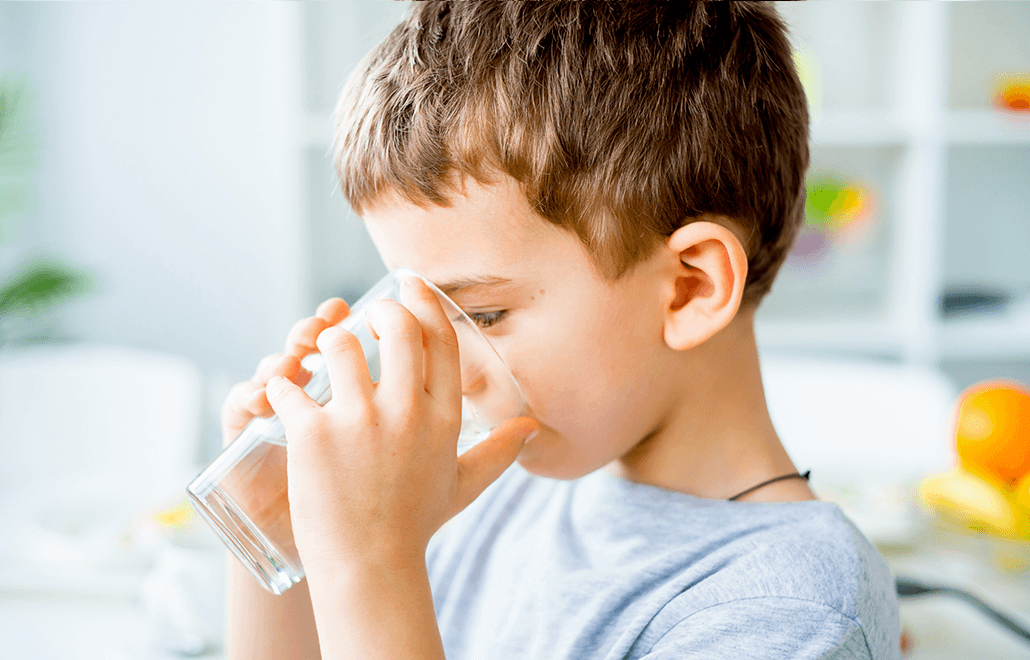
04 May How To Tell If Your Child is Dehydrated
3 min. readStaying healthy and hydrated is important for all people, no matter what their age is. And while it may be fairly easy as an adult to tell when you are dehydrated and haven’t gotten enough water, it can be pretty difficult for kids to tell if they aren’t properly hydrated.
A lot of doctors will tell parents to “watch” for dehydration, but sometimes that is easier said than done. It is important to stay diligent with this and know what you are looking for because dehydration in children can go from mild to severe very fast.
While this can be one of the more challenging things for parents to keep track of, there are several tips you can keep in mind that will help you determine if your child isn’t hydrated enough.
- Dry lips and mouth. If your child has dry or tacky lips, or if your baby isn’t drooling as much, then they may be dehydrated.
- Limited tears. Toddlers and babies who normally cry often may start crying with no or fewer tears. They may also have eyes that look sunken in.
- Headaches. Older children may complain of headaches or being dizzy. In babies, the fontanelle or the soft spot on their scalp may start to look sunken in.
- Abnormal urine. This is one of the easiest ways to spot an issue with dehydration. If your child’s urine is darker than normal or less frequent, they are likely dehydrated. For babies, this may mean less than 6 wet diapers in 24 hours, and in small children, it can mean not urinating for six hours or longer.
- Behavior changes. If your child complains of cramps, is more tired or irritable, or seems to be more thirsty than normal, then they may be dehydrated.
If you notice issues like this, make sure that you are giving your child water and a hydrating solution such as Pedialyte to help remedy their symptoms. They should be given extra fluids infrequent, small sips of about 1 to 2 teaspoons every few minutes. Clear soup is another way to help rehydrate your child. If your child has increased and persistent vomiting or diarrhea as part of their dehydration symptoms, contact their doctor right away.
At the end of the day, managing your child’s hydration is all about fluid in vs. fluid out. So, if your child is refusing to drink something, but they are sweating from activity or fever, they are going to get dehydrated fast. Fluid can “come out” with vomiting and diarrhea as well, which is why it is so important for a kid to drink a lot of liquids when they aren’t feeling well. Understanding this simple math equation will make it even easier for you to spot signs of dehydration when they occur.
Failing to keep your child as hydrated as possible can lead to some very serious health issues if you aren’t careful. Keep these tips in mind to make sure that your child is hydrated and healthy. If you have any concerns about constant dehydration or are worried your child may be ill, then call Continuum Pediatrics directly at 817-617-8600 today to make an appointment.

